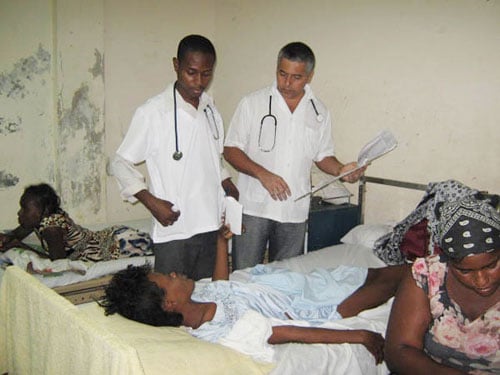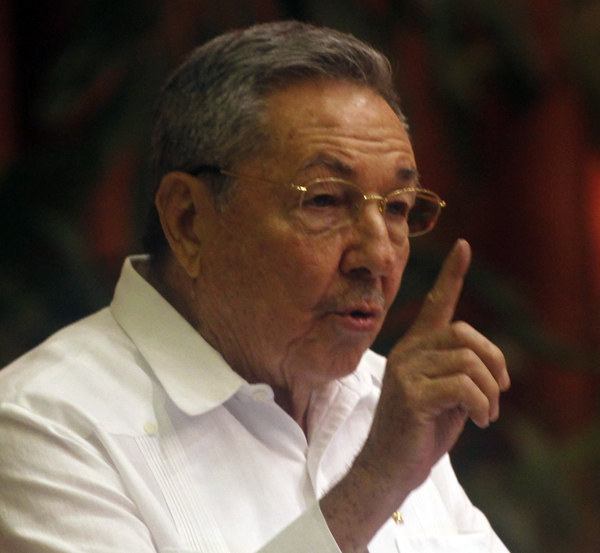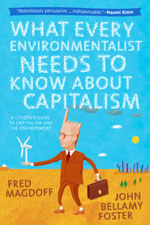On the meaning of ‘popular front’

The Bolivarian movement led by Hugo Chávez contains bourgeois forces and has been the scene of repeated struggles between popular and bureaucra
Israel: Mass protest movement offers hope
300,000 protesters in Tel Aviv, August 6, 2011.
By Guy Gillor
August 8, 2011 – Links International Journal of Socialist Renewal -- The 2011 global uprisings remind us how infectious the revolutionary spirit can be. In the last three weeks, a social movement within Israel has sprung to life in an almost spontaneous manner. A small housing protest that started on July 14 has swept hundreds of thousands of people into protest across the country. As in many other countries, people in Israel face rapidly increasing living costs and privatisation of public assets.
Vietnam: Extraordinary petition by 'patriotic personalities'

By Michael Karadjis
July 29, 2011 -- Vietnam from the Left, posted at Links International Journal of Socialist Renewal with the author's permission -- Below is an extraordinary document initiated by some 20 prominent Vietnamese academics, former military figures, former officials, writers etc, who express great unease about the current situation for Vietnam, faced on the one hand by increasingly aggressive Chinese actions in the East Sea (also known as the South China Sea), and on the other by an economic situation characterised over the last few years by mounting crisis and severe inflation, which is hammering people’s living standards.
Fact-finding delegation reports on post-earthquake Haiti

Cuban and Cuba-trained Haitian doctors at work in Haiti.
July 26, 2011 -- Canada Haiti Action Network -- Three Canadian solidarity activists conducted a 10-day fact-finding and solidarity mission to Haiti from June 20 to 30, 2011. The delegation, organised by Haiti Solidarity BC, the Vancouver affiliate of the Canada Haiti Action Network, travelled throughout the earthquake zone, including Port-au-Prince, Léogâne and Jacmel.
We visited neighbourhoods, camps of displaced people, medical centres and human rights and social organisations there to gain an overview of the most pressing needs in Haiti. During some of our visits and interviews, we were joined by other Canadians working on aid projects.
Iceland’s loud 'No!': Can't pay, won't pay

By Silla Sigurgeirsdóttir and Robert H. Wade
South Africa: ANC government shuts door on Swaziland democracy movement

King Mswati III: sitting pretty after ANC "bail out".
August 5, 2011 -- South Africa's African National Congress government has defied supporters of democracy in Swaziland and granted the repressive absolute monarchy a five-year, R2.4 billion loan. The bailout, which was announceded by King Mswati III on August 3, has been condemned by the Swazi democracy movement and its supporters in South Africa. While its conditions do not require democratic reforms, the Swazi people will be subject to harsh austerity in order for the regime to repay the loan.
* * *
August 4, 2011 -- The Swaziland Solidarity Network (SSN) is calling upon the South African government to stop dilly dallying at a time when it has a genuine opportunity to exert pressure on Swazi authorities to stop human rights abuses and end the Tinkhundla dictatorship.
South African Communist Party at 90: Is it still relevant? Two views

By Jeremy Cronin
July 31, 2011 -- Amandla! -- Mikhail Gorbachev, who presided over the liquidation of his own communist party, is not generally well regarded in communist circles. There is, however, at least one pertinent observation in his book, Perestroika. There he writes that he realised there was need for change in the former Soviet Union when the program of the party was increasingly determined by the march of the calendar, by a ritualistic commemoration of historical dates.
This weekend [July 31] the South African Communist Party (SACP) marks its 90th anniversary. But it would be a mistake for us to celebrate the occasion as mere ritual.
As a young operative I was proud of being recruited into a party that, from its outset in the early 1920s, had pioneered non-racialism -- not just in principle, but shoulder to shoulder in active struggle. It was the party that started night schools and literacy classes [for blacks].
Malaysia: Socialists had no case to answer

PSM deputy president M. Sarasvathy celebrates her release. Photo by Alex Cheong.
By the Socialist Party of Malaysia
August 2, 2011 -- Parti Sosialis Malaysia -- The release of six Parti Sosialis Malaysia (PSM, Socialist Party of Malaysia) detainees five days ago does not signal the return of sanity and goodwill to the government. It was a calculated move to minimise the damage done to the country’s image at home and abroad.
Cuba: National Assembly approves economic changes; Raul Castro's speech

"More than once, I have stated that our own worst enemy is not imperialism but our own errors and that these, if they are deeply and honestly analysed, can be transformed into lessons in order not to fall into them again." -- Raúl Castro
By President Raúl Castro
Speech given by President Raúl Castro Ruz, president of the Councils of State and Ministers, to the 7th ordinary session of the 7th legislature of the National Assembly of People’s Power, August 1, 2011. The parliament earlier that day also adopted the amended Guidelines of the Economic and Social Policy of the Party and the Revolution as state policy.
Compañeras and compañeros:
United States: The deficit deal -- We got taken

By Martin Hart-Landsberg
August 2, 2011 -- Reports from the Economic Front, posted at Links International Journal of Socialist Renewal with Martin Hart-Landsberg's permission -- The US Congress has finally agreed on a deficit reduction plan that President Barack Obama supports.As a result, the debt ceiling is being lifted, which means that the Treasury can once again borrow to meet its financial obligations.
Avoiding a debt default is a good thing.However, the agreement is bad and even more importantly the debate itself has reinforced understandings of the US economy that are destructive of majority interests.
Leaving oil in the soil, from Durban's coast to Ecuador's Amazon

The decrepit 40-year-old tanker, MT Phoenix, lost its anchor mooring on July 26, 2011, and was pushed to the rocky shoreline in Christmas Bay, 25 kilometres north of Durban.
By Patrick Bond, Durban
August 2, 2011 -- Links International Journal of Socialist Renewal -- There's no way around it: to solve the worsening climate crisis requires we must accept both that the vast majority of fossil fuels must now be left underground, and that through democratic planning, we must collectively reboot our energy, transport, agricultural, production, consumption and disposal systems so that by 2050 we experience good living with less than a quarter of our current levels of greenhouse gas emissions.
That's what science tells our species, and here in South Africa a punctuation mark was just provided by a near-disaster in Durban -- host of the world climate summit, four months from now -- during intense storms with six-metre waves last week. A decrepit 40-year-old tanker, MT Phoenix, lost its anchor mooring on July 26 and was pushed to the rocky shoreline in Christmas Bay, 25 kilometres north of the city.

August 1, 2011 -- Monthly Review Press has kindly given permission to Links International Journal of Socialist Renewal to publish "The growth imperative of capitalism", an exclusive excerpt from Fred Magdoff and John Bellamy Foster's just released What every environmentalist needs to know about capitalism. You can download the excerpt HERE (PDF), or read it on screen below.
John Bellamy Foster will be a featured international guest at the second World at a Crossroads: Climate Change – Social Change Conference, Friday, September 30 – Monday, October 3, 2011, Melbourne University.